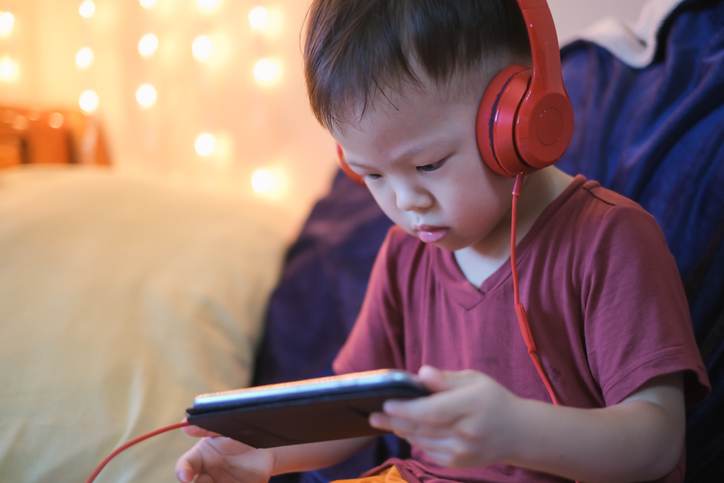Serving the Lowcountry and Coastal Empire of Georgia and South Carolina.
Monday, September 30, 2024

As technology progresses, so does our attachment to it. To raise awareness of the effects this technology use can have on our health, we’re excited to share a blog series discussing this topic. This blog is the latest installment in that series, but review our other blogs if you’d like to learn about how technology affects our nutrition, posture, and brains.
Children are using technology more and more each year. While these devices offer educational content and entertainment, excessive use can lead to chronic negative side effects on their developing bodies and minds.
“Technology has transformed the way we live, and this impact is especially evident in how children grow and interact with the world,” SouthCoast Health pediatrician, Dr. Blaine Crosland explained. “While some apps are excellent tools for educating our children in ways that we cannot, there's also a downside. The distraction from devices can hinder children's learning and development compared to past generations.”
Smart devices are increasingly becoming an integral part of children's lives, influencing their development and daily routines. Check out our guidelines below for navigating screen time for your child.
While technology offers many benefits, it's crucial to be aware of the potential negative impacts it can have on children's development and well-being. Excessive use can lead to negative consequences including the following:
The American Academy of Pediatrics (AAP) provides guidelines to help parents manage their children's screen time based on their developmental stages. Here are a few pointers for your child’s developmental milestones:
While smart devices can be beneficial when used appropriately, it's crucial for parents to manage their children's media use to support healthy development. By setting boundaries and encouraging diverse activities, families can maximize the benefits of technology while minimizing its risks. To help your child use technology more responsibly and maintain a healthy balance, consider these strategies:
If you have additional questions or concerns about how technology is affecting your child, give us a call at 912-691-3600 or visit us online to schedule an appointment to meet with a member of our pediatrics team.
Whether you are looking for a primary care doctor or a pediatrician, or another medical specialist, SouthCoast Health has you covered with its wide range of world-class healthcare services, available throughout the Coastal Empire and Lowcountry. SouthCoast Health has 120 physicians and medical professionals in 16 locations in Savannah, Richmond Hill, Pooler, Rincon, Baxley, Hilton Head, Hinesville, and Statesboro. SouthCoast Health offers comprehensive medical services including: Family Medicine, Internal Medicine, Pediatrics, Allergy and Asthma, Cardiology, Endocrinology, Eye Care, Imaging, Infectious Diseases, Nephrology, Neurology, Physical Therapy, Podiatry, Surgery, Clinical Trial Research Studies, Diabetic Self-Management Training Sessions, Dietetic Counseling, Laboratory Services, Massage Therapy, Optical Shop, Pharmacy, and Urgent Care.